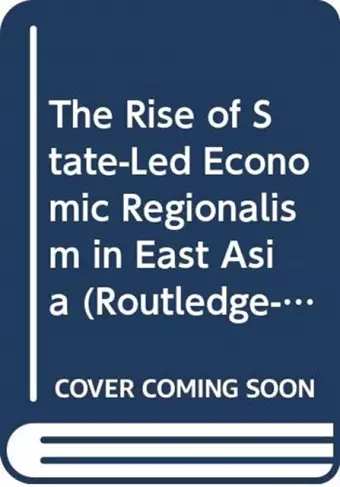The Rise of State-Led Economic Regionalism in East Asia
Format:Hardback
Publisher:Taylor & Francis Ltd
Publishing:5th Jan '26
£115.00
This title is due to be published on 5th January, and will be despatched as soon as possible.

East Asia regionalism took a dramatic turn after the Asian Financial Crisis in 1997-98. Within the newly established regional framework, East Asian states have taken the initiatives to negotiate free trade agreements, pursue cross-country financial collaboration, and build effective regional institutions. Importantly, the state-led economic regionalism and its institutional turn marked a departure from the early period of uninstitutionalized production network and autonomous economic integration.
To account for such a change, this book provides a much-needed analysis of the rise of state-led regionalism after the Asian financial crisis. Focusing on six major Asian economies (China, Japan, South Korea, Indonesia, Malaysia, and Thailand), the book illustrates that state-led economic regionalism has been an unintended outcome of the post-crisis restructuring of the Asian developmental state. The book also explains that the Asian financial crisis transformed the government-business relationship embedded in the developmental state of Northeast and Southeast Asia. Because of the diverging trajectories of domestic restructuring, Northeast Asia became more market-oriented and pro-globalization while Southeast Asia turned more cautious about foreign capitals and IMF-led global financial governance. As East Asia recovered from the crisis, state-led economic regionalism emerged as a regional consensus for Northeast Asian economies to address the regional implications of their globalization strategies, and for Southeast Asian economies to pursue economic growth shielded from the immediate risk of globalization.
The book not only demonstrates the methodological importance of integrating domestic and regional analysis of East Asian political economy, but also provides a sophisticated empirical account of the emerging architecture of East Asian regionalism.
ISBN: 9780415834209
Dimensions: unknown
Weight: unknown
256 pages